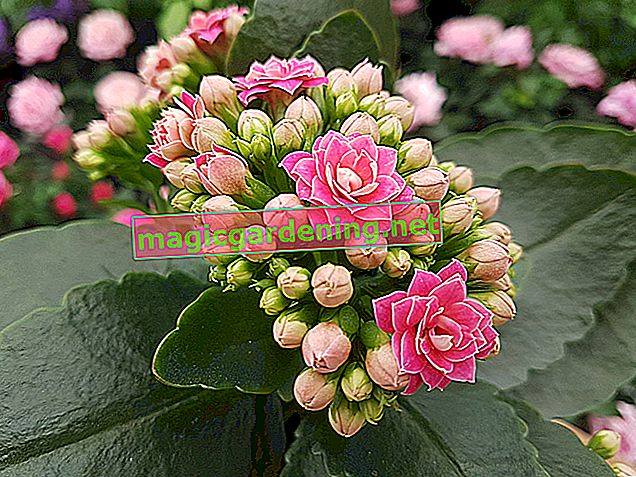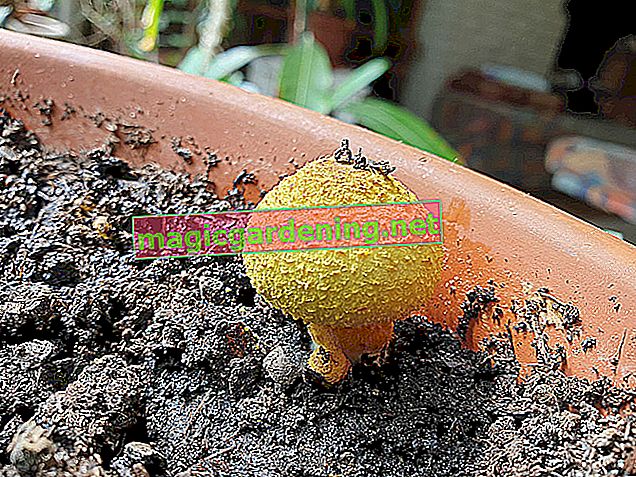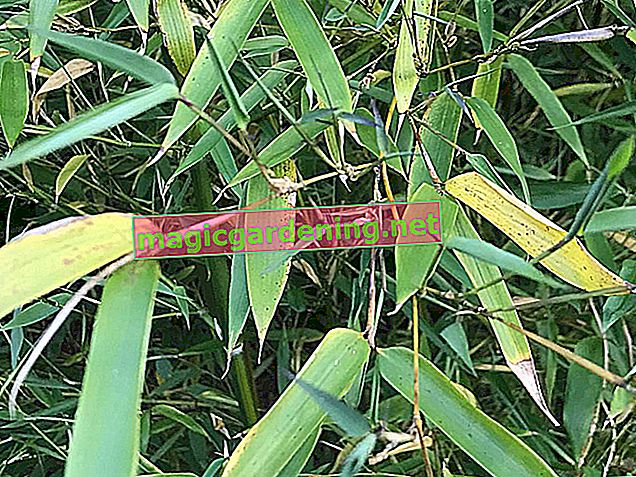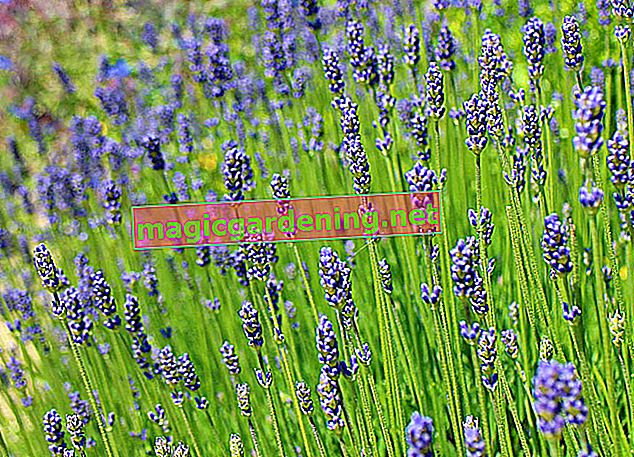
The flowers and fruits of the lemon tree
If the conditions are right, lemons bloom almost all year round, and they usually develop flowers and fruits at the same time. The strongly fragrant flowers usually grow individually or up to three on short stems in the leaf axils. The buds are slightly reddish. The white, cup-shaped calyxes have five very short, triangular tips. They are about four millimeters long. The five fleshy, white petals are about two centimeters long. The approximately seven to 14 centimeters long fruits are actually berries. The period from flowering to fruit ripening is very long with an average of six to nine months. The pale to strong yellow color - depending on the variety - only develops at cooler temperatures.
also read
- Lemon tree - hardy or not?
- Harvest lemons from your own lemon tree all year round
- Do not overwinter the lemon tree on the balcony
The fertilization of the lemon tree
Contrary to the opinion of some self-appointed citrus experts, which can be read in various garden forums, lemons are among the self-fruiting plants. For this reason, neither a second citrus plant nor human brush tuition is necessary for pollination. With a few exceptions, lemon blossoms are hermaphroditic, meaning that they have both male and female characteristics. However, some flowers have stunted female flower characteristics. The fertilization takes place either via insects, by the wind or within the hermaphrodite flower. Parthenocarpy, that is, fruit development without prior fertilization, also occurs very frequently. If you want to be on the safe side, you can shake the tree a little - provided it is not outside - to stimulate the wind.
My lemon tree produces flowers but not fruits. Why is that?
Many owners of a lemon tree are surprised that their plant produces flowers but not fruits. Often this is due to inadequate conditions, i.e. the lemon lacks water, nutrients and / or light. Pay attention to optimal site conditions, then it should also work with the fruiting. However, there are some types of lemon, especially hybrids, that are sterile. This means that these plants - mostly hybrids of different citrus species - are not able to produce pollen and thus fertilize or produce fruits.
Reasons for a lack of fruit development
- Plant is sterile
- Plant receives too little water
- Plant suffers from waterlogging (e.g. due to lack of pot drainage)
- The roots are not intact, which is why not enough nutrients can be passed on.
- The fertilization is not sufficient.
- Plant suffers from lack of light (especially in winter!)
- The pot is too small.
First of all, check the criteria mentioned and improve the site conditions and the care of the lemon tree accordingly. If it does not fruit even under optimal conditions, then it is a sterile tree.
Tips & Tricks
Since almost every blossom leads to a fruit, sometimes far too many lemons develop, which the tree cannot feed all. Therefore, surplus fruits are usually thrown off. However, if (almost) all the fruits are regularly shed, the tree usually lacks water.








